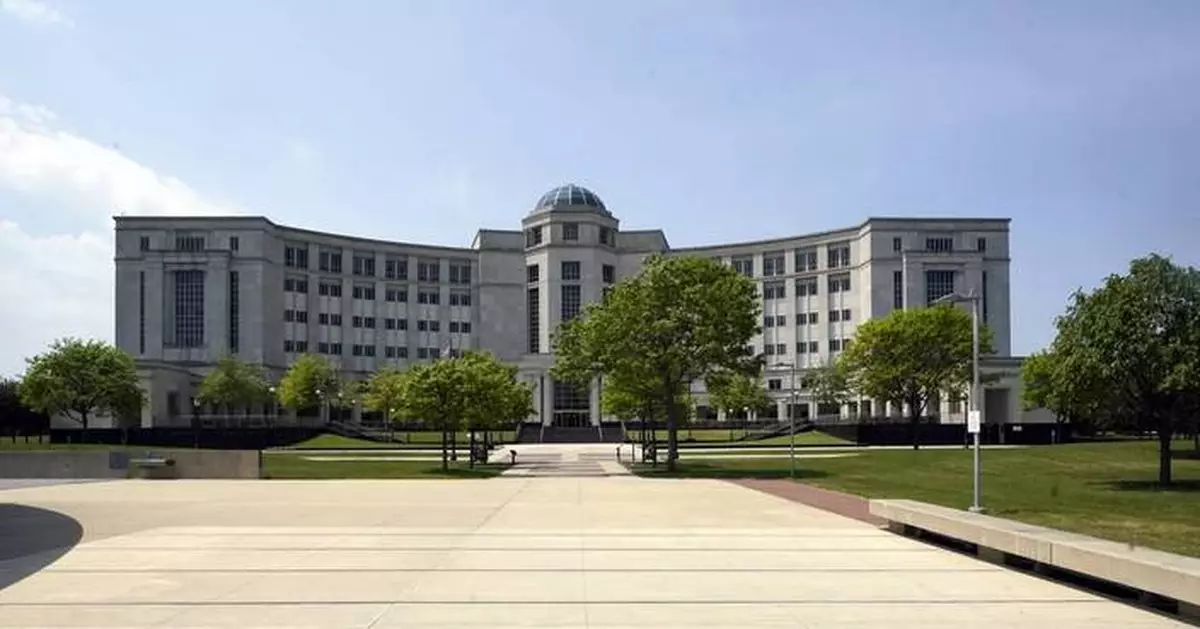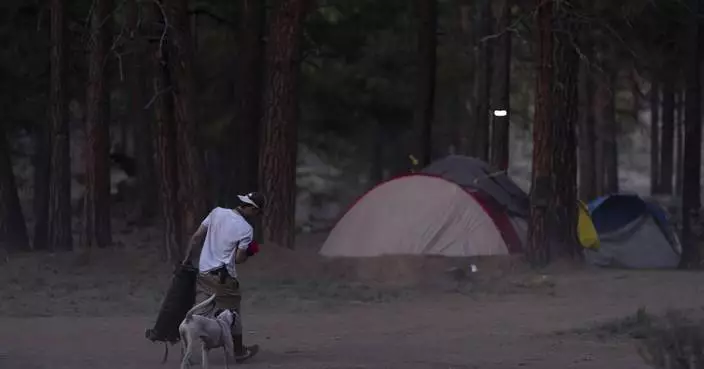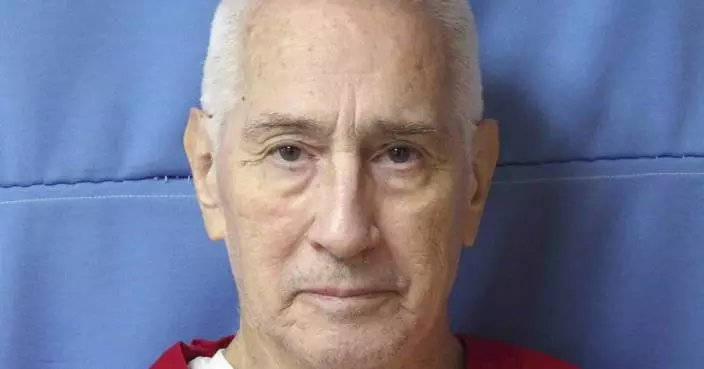DETROIT (AP) — The Michigan Supreme Court made an extraordinary change to the state's sentencing law Thursday, striking down automatic, no-parole prison terms for 19-year-olds and 20-year-olds convicted of murder.
As a result, hundreds of people will be eligible to return to local courts to ask for a shorter sentence and an opportunity for freedom. At the same time, anguished friends and relatives of murder victims will have to revisit the cases, too.
The Supreme Court, in a 5-2 opinion, said mandatory life sentences for people who were 19 and 20 at the time of the crime violate a ban against “cruel or unusual punishment” in the Michigan Constitution. The court made a similar decision for 18-year-olds in 2022.
A mandatory life sentence “that does not allow for consideration of the mitigating factors of youth or the potential for rehabilitation is a grossly disproportionate punishment,” Justice Elizabeth Welch wrote.
Michigan was among only 16 U.S. states that impose mandatory life terms on anyone convicted of first-degree murder who was over 18, according to the MacArthur Justice Center.
A life sentence in Michigan still can be possible for someone 19 or 20, though it will be rare. The burden will be on prosecutors to show that someone convicted of murder should never get a chance at parole. Judges will hear evidence about family life, mental health, education and other factors, the same process followed for people 18 or under.
Welch said the court's decision was rooted in scientific research about brain development and a young person's ability to fully grasp the consequences of their actions.
“As late adolescents mature into fully developed adults, they become less prone to reckless decision-making, more likely to consider and appreciate consequences, and less susceptible to peer pressure,” Welch said.
In a dissent, Chief Justice Elizabeth Clement said lawmakers, not the court, should decide whether to change the law.
“Courts should not reshape the law with every shift in scientific consensus, especially when it is the Michigan Constitution that is the subject of reshaping,” said Clement, who was joined by Justice Brian Zahra.
During arguments in January, Flint-area assistant prosecutor Katie Jory urged the court to think about the impact on victims' families if nearly 600 sentences are reopened.
They will be “forced to reopen these old wounds, stop where they are in their grieving process, go in front of a court again and bare publicly their soul regarding the hurt that they have experienced based on the murder of their loved one,” Jory said.
The Supreme Court heard appeals on behalf of Montario Taylor, who was 20 when he repeatedly shot a man in the victim's home in 2016, and Andrew Czarnecki, who was 19 when he was involved in the fatal beating of a man with a Christmas tree stand in 2013.
Since 2021, courts or lawmakers in Washington state, Illinois and Massachusetts have prohibited life sentences for people under 21 or made parole opportunities available.
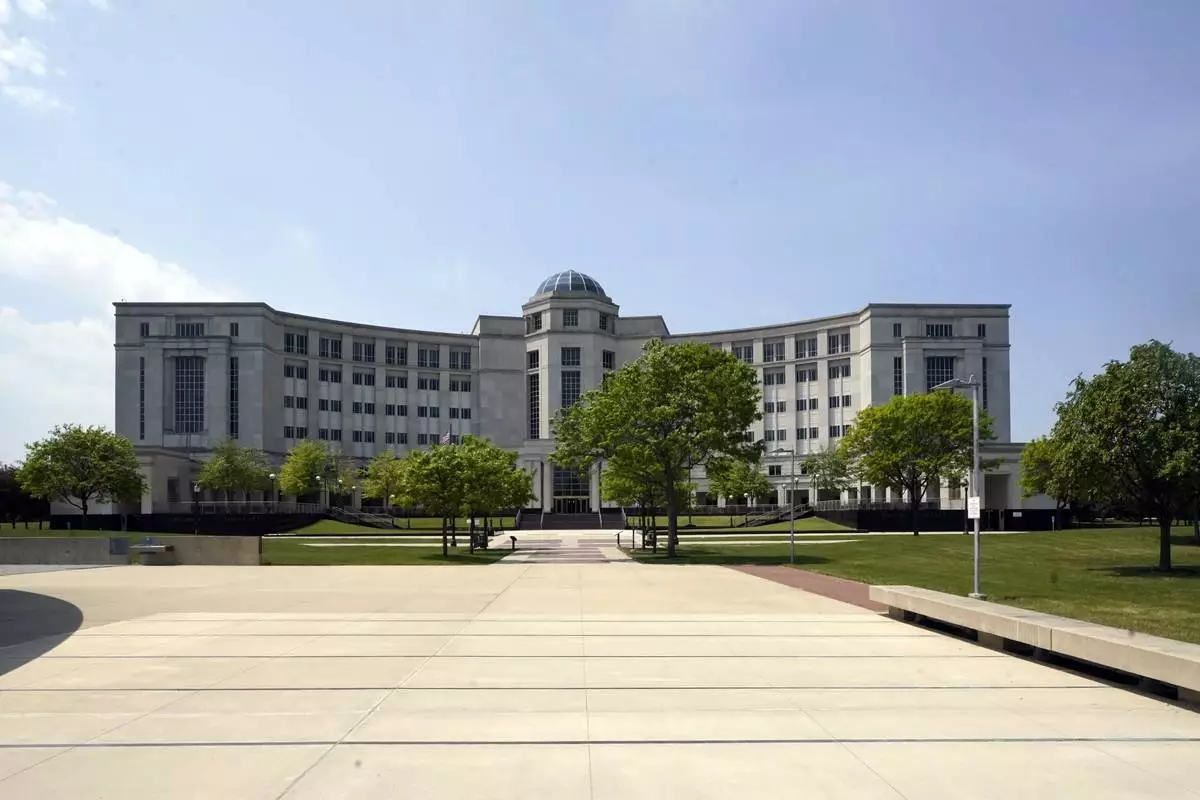
FILE - The Michigan Hall of Justice, home to the Michigan Supreme Court is photographed, Wednesday, May 24, 2023, in Lansing, Mich. (AP Photo/Carlos Osorio, File)
A federal judge on Thursday barred the Trump administration from deporting any Venezuelans from South Texas under an 18th-century wartime law and said President Donald Trump's invocation of it was “unlawful.”
U.S. District Court Judge Fernando Rodriguez Jr. is the first judge to rule that the Alien Enemies Act cannot be used against people who, the Republican administration claims, are gang members invading the United States. Rodriguez said he wouldn't interfere with the government's right to deport people in the country illegally through other means, but it could not rely on the 227-year-old law to do so.
“Neither the Court nor the parties question that the Executive Branch can direct the detention and removal of aliens who engage in criminal activity in the United States,” wrote Rodriguez, who was nominated by Trump in 2018. But, the judge said, "the President’s invocation of the AEA through the Proclamation exceeds the scope of the statute and is contrary to the plain, ordinary meaning of the statute’s terms.”
In March, Trump issued a proclamation claiming that the Venezuelan gang Tren de Aragua was invading the U.S. He said he had special powers to deport immigrants, identified by his administration as gang members, without the usual court proceedings.
"The Court concludes that the President’s invocation of the AEA through the Proclamation exceeds the scope of the statute and, as a result, is unlawful,” Rodriguez wrote.
In an interview on Fox News, Vice President JD Vance said the administration will be “aggressively appealing” the ruling and others that hem in the president's deportation power.
“The judge doesn’t make that determination, whether the Alien Enemies Act can be deployed,” Vance said. “I think the president of the United States is the one who determines whether this country is being invaded.”
The chair of the Congressional Hispanic Caucus, Rep. Adriano Espaillat, D-N.Y., said in a statement the judge had made clear “what we all knew to be true: The Trump administration illegally used the Alien Enemies Act to deport people without due process.”
The Alien Enemies Act has only been used three times before in U.S. history, most recently during World War II, when it was cited to intern Japanese-Americans.
The proclamation triggered a flurry of litigation as the administration tried to ship migrants it claimed were gang members to a notorious prison in El Salvador.
Rodriguez’s ruling is significant because it is the first formal permanent injunction against the administration using the AEA and contends the president is misusing the law. "Congress never meant for this law to be used in this manner,” said Lee Gelernt, the ACLU lawyer who argued the case, in response to the ruling.
Rodriguez agreed, noting that the provision has only been used during the two World Wars and the War of 1812. Trump claimed Tren de Aragua was acting at the behest of the Venezuelan government, but Rodriguez found that the activities the administration accused it of did not amount to an invasion or “predatory incursion,” as the statute requires.
“The Proclamation makes no reference to and in no manner suggests that a threat exists of an organized, armed group of individuals entering the United States at the direction of Venezuela to conquer the country or assume control over a portion of the nation,” Rodriguez wrote. “Thus, the Proclamation’s language cannot be read as describing conduct that falls within the meaning of ‘invasion’ for purposes of the AEA.”
If the administration appeals, it would go first to the New Orleans-based 5th U.S. Circuit Court of Appeals. That is among the nation’s most conservative appeals courts and it also has ruled against what it saw as overreach on immigration matters by both the Obama and Biden administrations. In those cases, Democratic administrations had sought to make it easier for immigrants to remain in the U.S.
The administration, as it has in other cases challenging its expansive view of presidential power, could turn to appellate courts, including the U.S. Supreme Court, in the form of an emergency motion for a stay pending an appeal.
The Supreme Court already has weighed in once on the issue of deportations under the AEA. The justices held that migrants alleged to be gang members must be given “reasonable time” to contest their removal from the country. The court has not specified the length of time.
It’s possible that the losing side in the 5th Circuit would file an emergency appeal with the justices that also would ask them to short-circuit lower court action in favor of a definitive ruling from the nation’s highest court. Such a decision likely would be months away, at least.
The Texas case is just one piece of a tangle of litigation sparked by Trump's proclamation.
The ACLU initially filed suit in the nation's capital to block deportations. U.S. District Judge James E. Boasberg issued a temporary hold on removals and ordered the administration turn around planes that had left with detainees headed to El Salvador, a directive that was apparently ignored. Later, the Supreme Court weighed in.
The justices stepped in again late last month with an unusual postmidnight order halting deportations from North Texas, where the ACLU contended the administration was preparing for another round of flights to El Salvador.
Riccardi reported from Denver. Associated Press writers Lindsay Whitehurst and Mark Sherman contributed to this report.
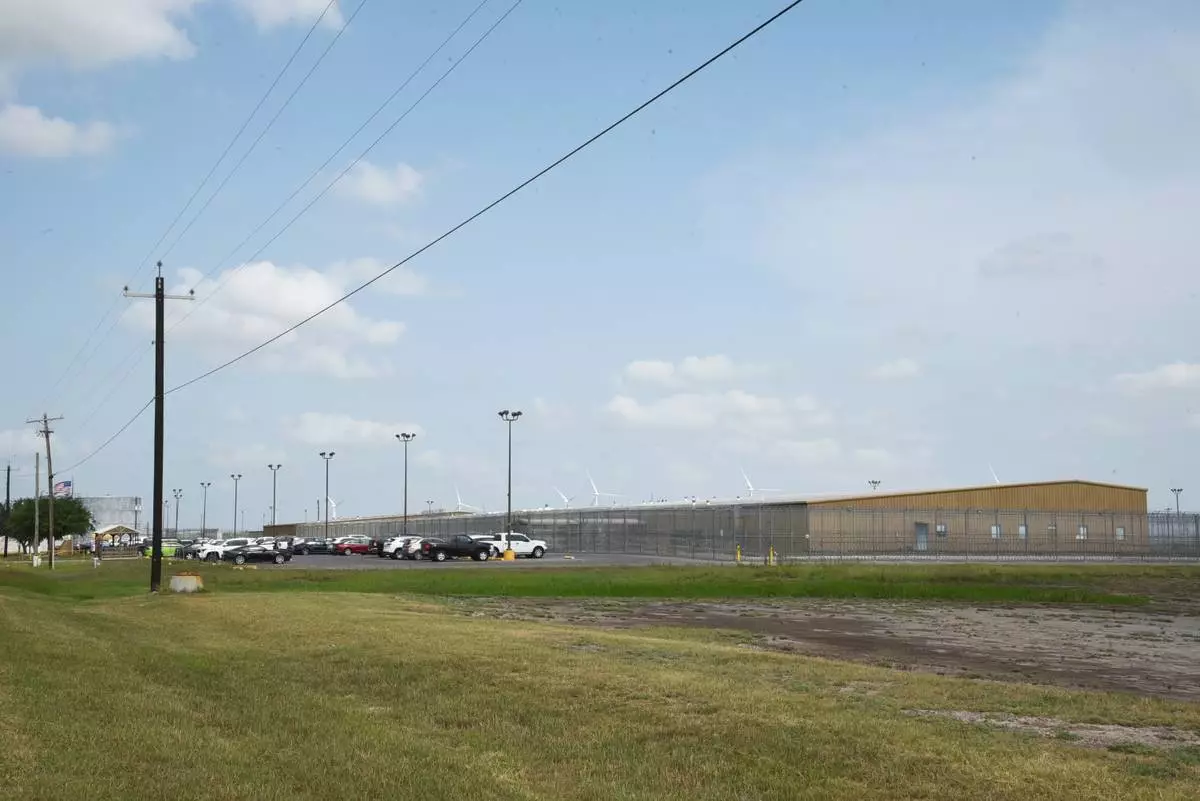
The El Valle Detention Center in Raymondville, Texas is pictured, Thursday, May 1, 2025, after a federal judge in the district barred the Trump administration from deporting any Venezuelans at the south Texas detention center under the Alien Enemies Act, an 18th-century wartime law. (AP Photo/Valerie Gonzalez)
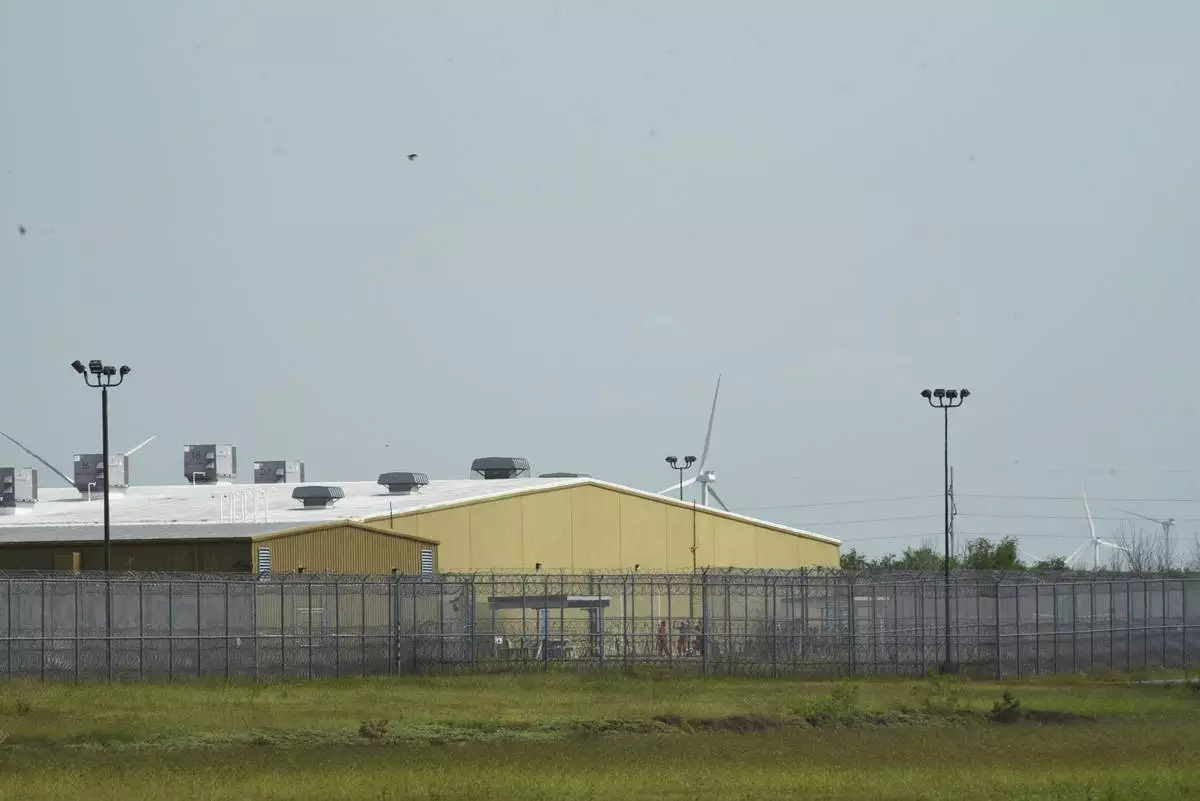
Detainees held at El Valle Detention Center in Raymondville, Texas are seen outside briefly, Thursday, May 1, 2025, after a federal judge in the district barred the Trump administration from deporting any Venezuelans from South Texas under the Alien Enemies Act, an 18th-century wartime law. (AP Photo/Valerie Gonzalez)
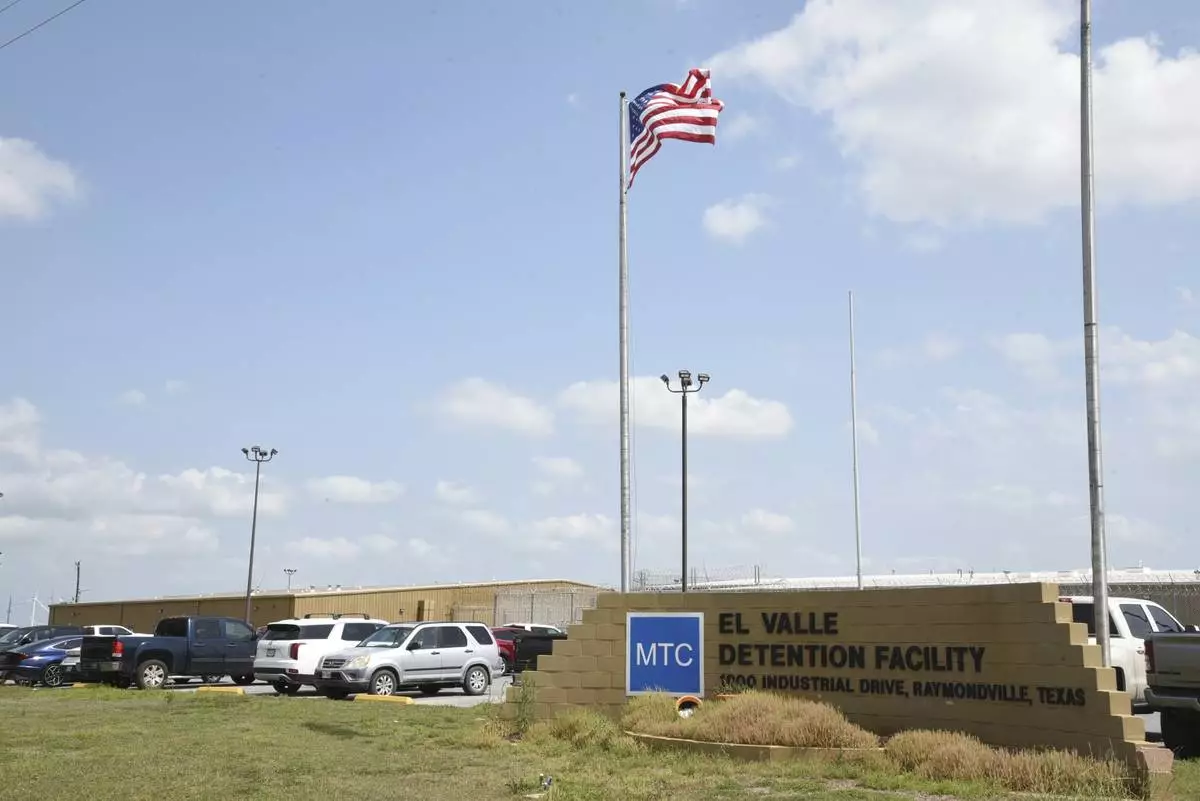
The El Valle Detention Center in Raymondville, Texas is pictured, Thursday, May 1, 2025, after a federal judge in the district barred the Trump administration from deporting any Venezuelans at the south Texas detention center under the Alien Enemies Act, an 18th-century wartime law. (AP Photo/Valerie Gonzalez)
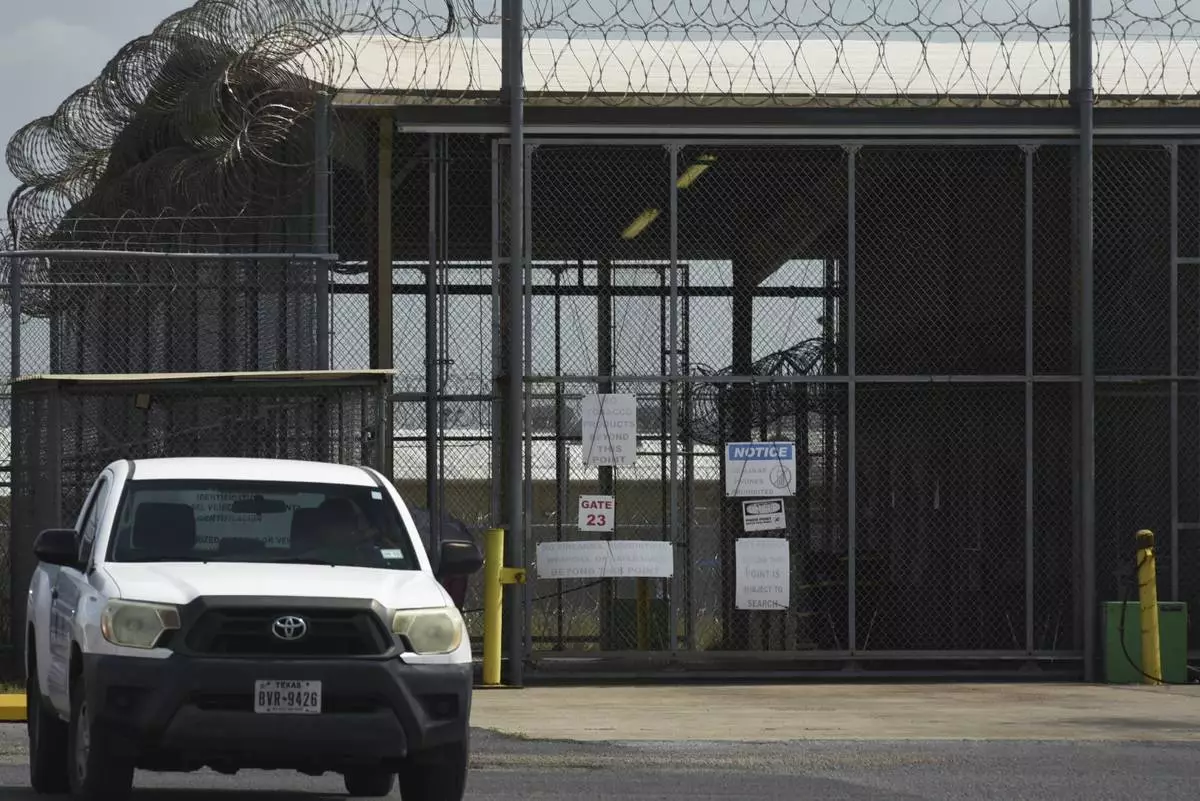
The El Valle Detention Center in Raymondville, Texas is pictured, Thursday, May 1, 2025, after a federal judge in the district barred the Trump administration from deporting any Venezuelans at the south Texas detention center under the Alien Enemies Act, an 18th-century wartime law. (AP Photo/Valerie Gonzalez)
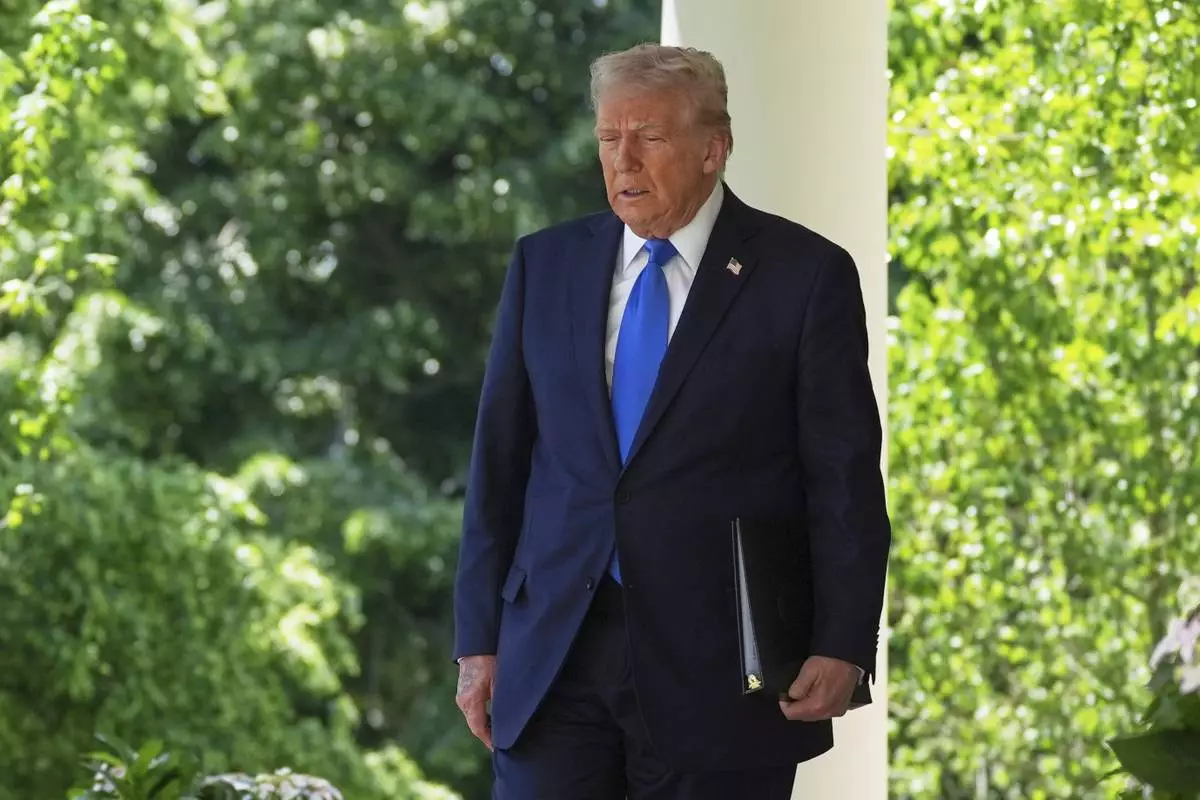
President Donald Trump arrives to speak during a National Day of Prayer event in the Rose Garden of the White House, Thursday, May 1, 2025, in Washington. (AP Photo/Evan Vucci)



